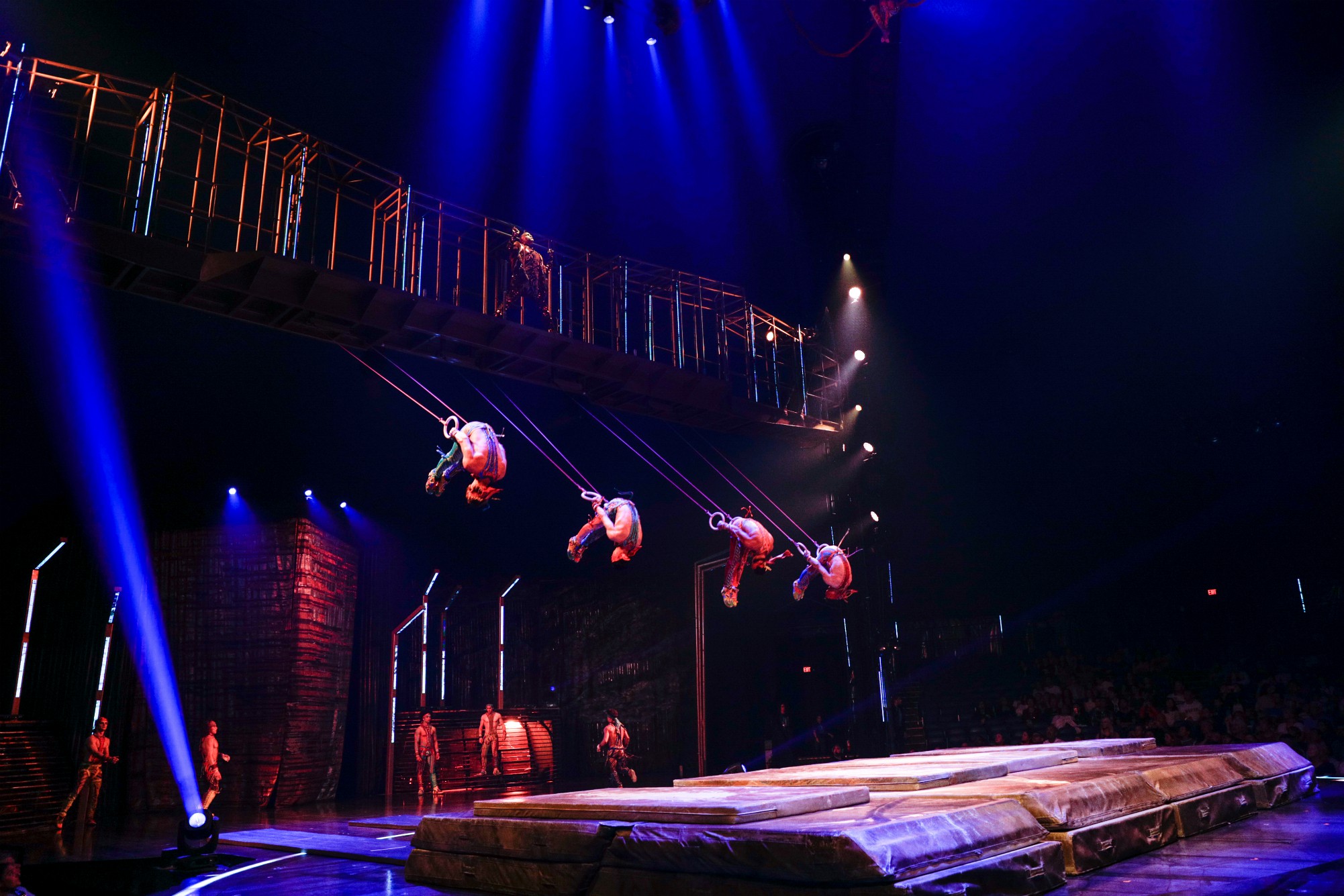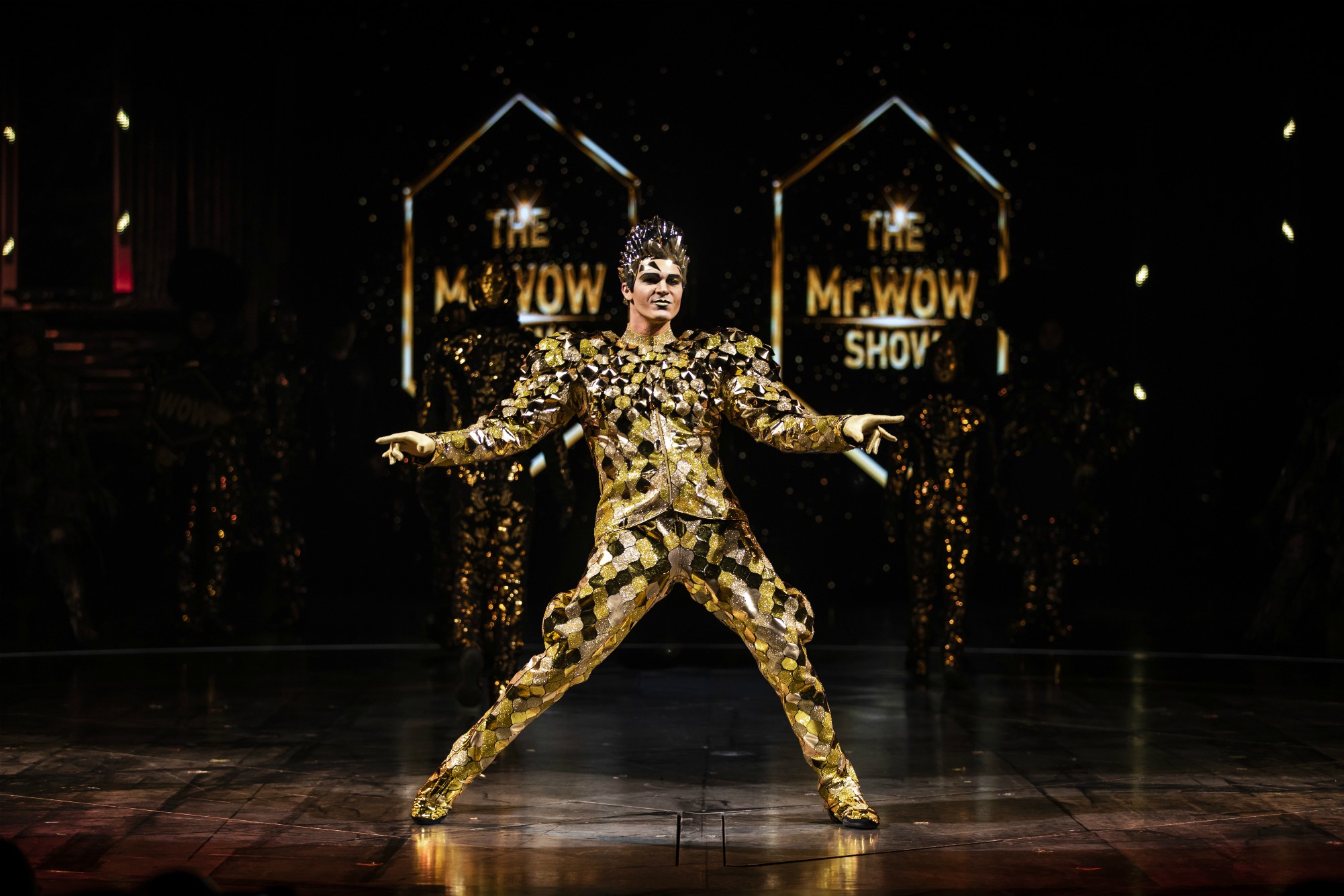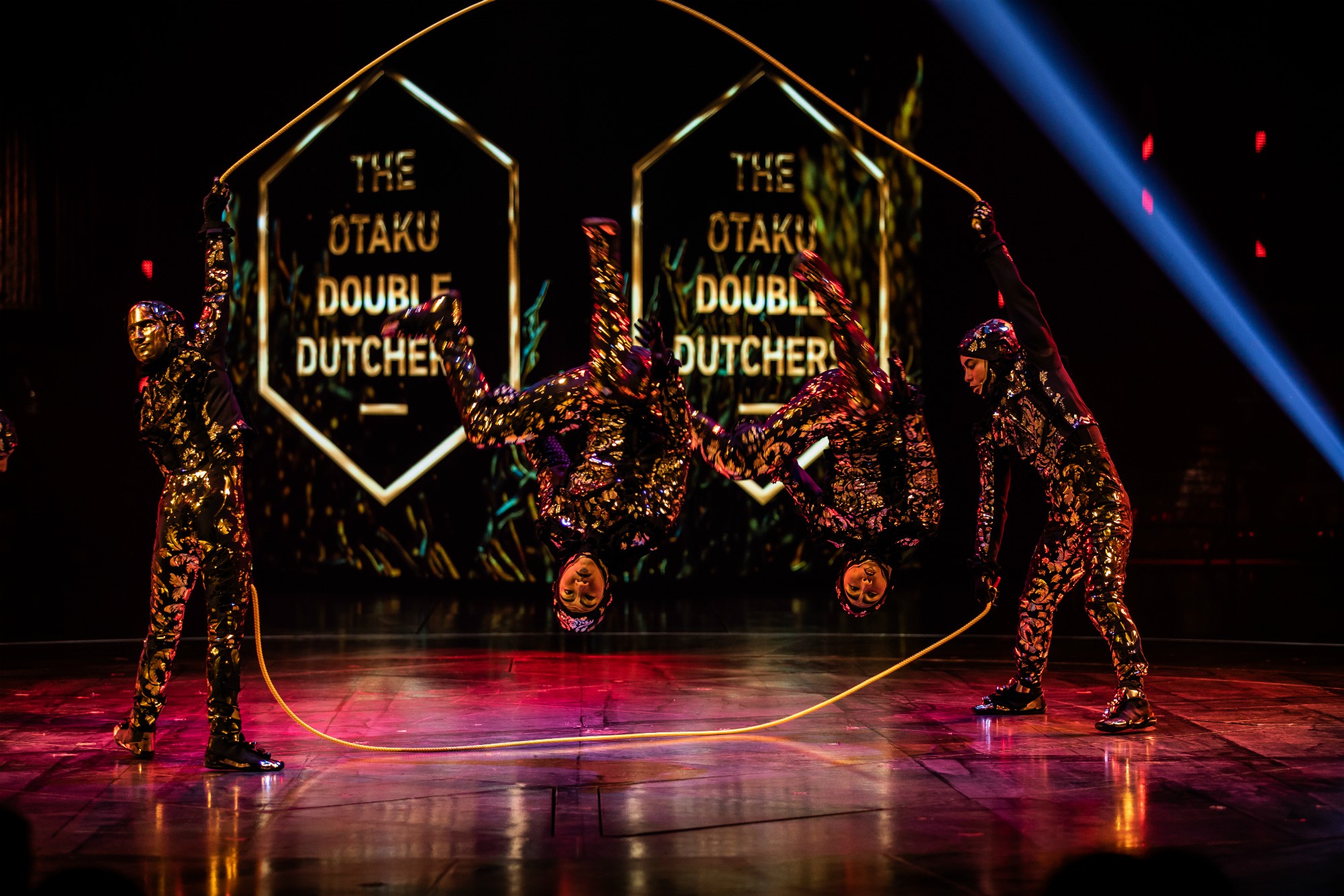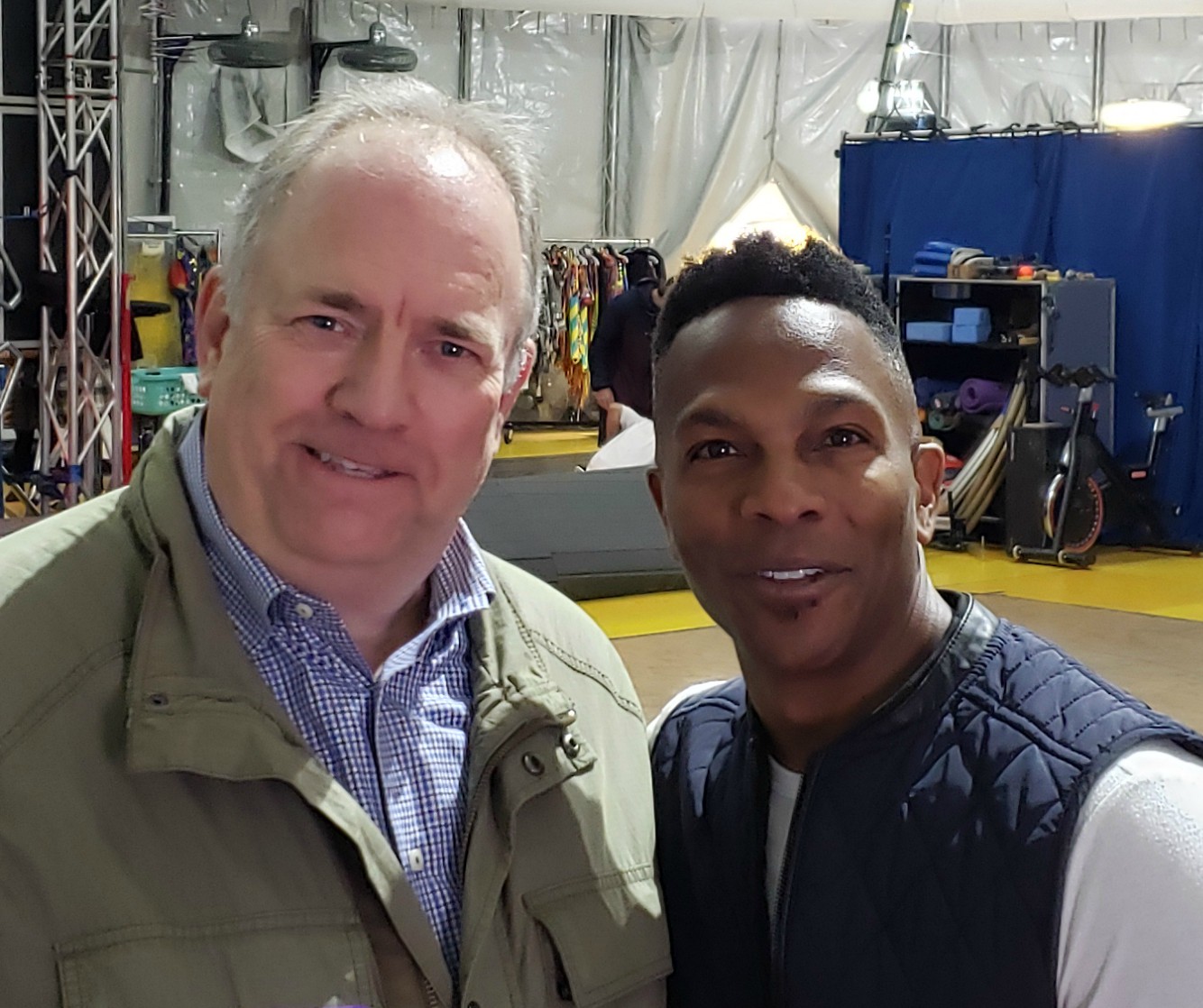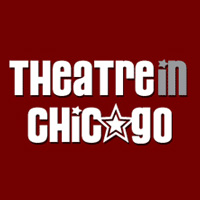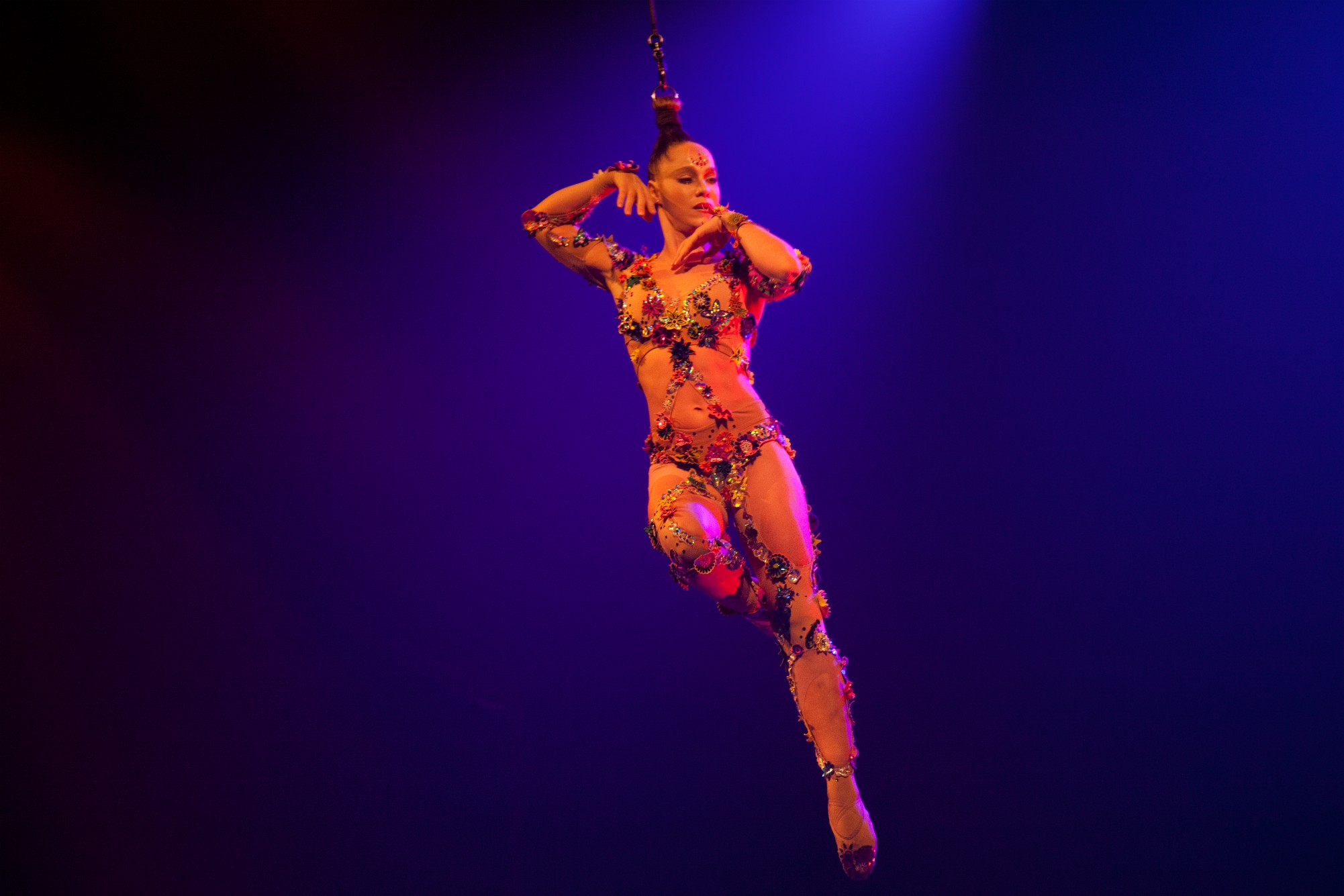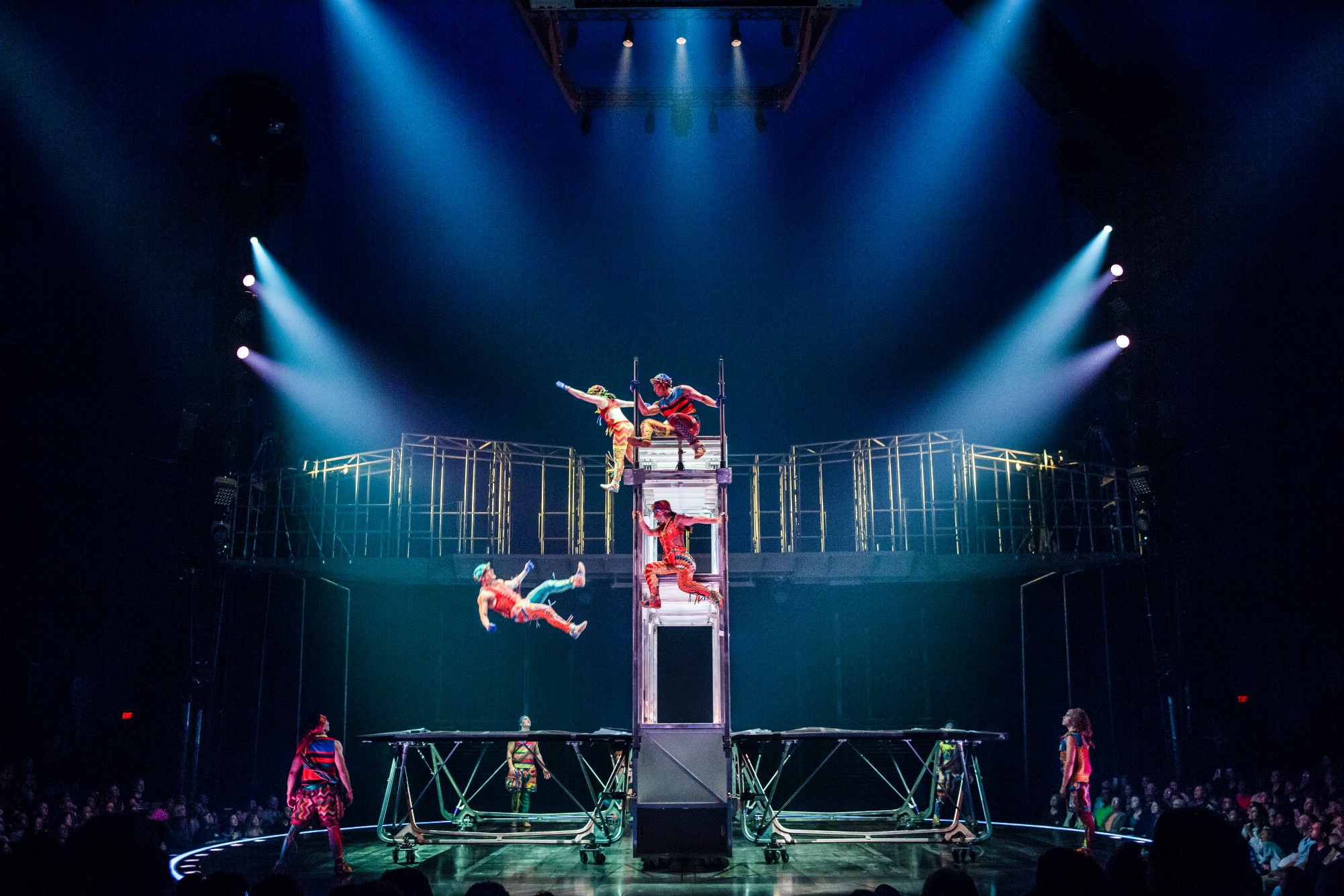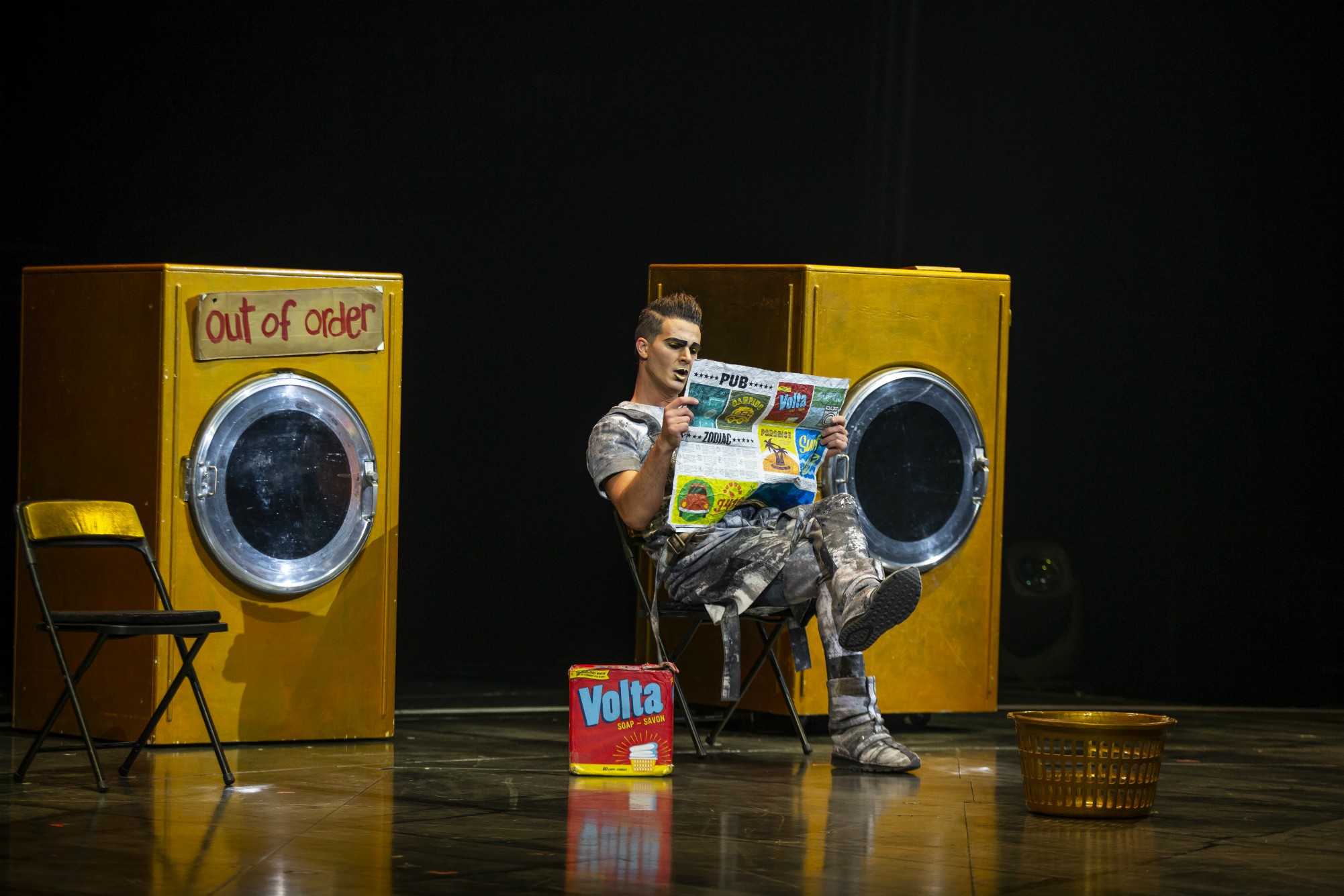RON KELLUM - VOLTA Cirque du Soleil
Cirque du Soleil is back in Chicago with VOLTA, a fascinating story with all of the thrills and excitement we have come to expect from the internationally renowned entertainment juggernaut.
Heading up the Volta team is Artistic Director Ron Kellum, an accomplished director, actor and choreographer whose extensive professional career spans Broadway and national touring companies, broadcast television, sports entertainment and film. Kellum joined Cirque’s KOOZA four years ago and took on his duties for VOLTA in late 2018.
As you can imagine, it is a daunting task to move the massive $40 million Cirque experience—this year playing in its new home adjacent to Soldier Field through July 6th—from city to city. After closing in one location on a Sunday night, trucks are moving immediately to transport the show with 160 technical and box office personnel, kitchen team and artists to the next location. The show is then mounted in three days onsite with artists arriving in the week before opening.
So everything was in motion during our fascinating CONVERSATION backstage with Kellum in advance of the show’s first preview. We discuss the development of the VOLTA storyline and how the experience intersects with the exciting international performers– this year featuring a BMX experience—to the process of insuring a safe environment for the performers and the audience.
The big job, which is everyone’s responsibility, is keeping the show fresh by continually evolving the creative vision. For Ron Kellum, VOLTA’s engaging Artistic Director, it’s all in a day’s work. PODCAST
The VOLTA Story… “The heart of this story is that every single one of us is uniquely special. And once we recognize that, then we stop trying to hide behind the armor that we put on every day and actually be our most authentic selves. … The storyline is about a young man who is what's happening right now in pop culture in contemporary time … using social media to control our narrative, to make people believe what our lives really look like. And actually we're not always being authentic about it. This young man goes on a journey … escaping his reality and his insecurity … goes on a game show to find success and become a star. … we take these extreme sports and these incredible acts to help guide him through his journey … we have ‘the grays,’ which we call people who live in norm, a human being sort of school like fish. We just sort of go along with it. Then there are the ‘free spirits’ … those of us who dare to live our biggest lives, not play small, be bold enough to shake free from norm and not be gray. … As a result, our character discovers who he is.”
BMX… “We have the extreme sports in this show, which is exciting. For someone like myself who comes from the theater, you don't have BMX on a stage. But to see a BMX park created right in front of your eyes within 90 seconds, and to see these world class BMX riders do tricks that you would never get to see is unreal. Outside of BMX, there are other extreme sports inside this show that you're like, ‘Are you kidding? This is actually happening. Not in a four-wall proscenium space. This is under a tent.’ So it's thrilling to watch that happen in real time along with a story that's inspiring.”
Story first or talent? … “sometimes the talent is first in the sense it's an inspiration for the concept for the creators. … the creative process typically takes about six months to develop . We bring these artists from all over the world into sort of a think tank. And from there it is developed and created. It's not just ‘Here are your lines. Here's the music. Go.” It's show me what you do, try this, let's create. And then everyone is layering their own and making a contribution to the greater process. That I think is why Cirque is special because it's a voice from all different departments. That's why it works.”
The Unicorn… “(the Artistic Director) is a unique position. I call it ‘The Unicorn’ because we have to take a show that has been created--it's been birthed--and then we have to manage that show and maintain the integrity of it; maintain the quality of it while at the same time helping it to evolve. So, you're maintaining someone else's work, putting your stamp on it, so to speak--but not from a sense of I want to change it because it's Ron Kellum--more about helping it to grow the vision. Six months isn't a lot of time. So you want this show to keep growing. I have to help with that inspiration while at the same time managing 50 artists who come with their own special needs and disciplines. Their life experiences. For example, I have the BMX team that we've talked about. They are Olympic athletes now. They have to become showmen. So understanding the reality of show and eight to ten shows a week. Helping understand that discipline. These guys want to push themselves, but we also have to maintain that level of ‘Can you do that eight shows a week?’ as opposed to being in the Olympics and you do it one time at your highest level. So, it's really helping to craft all these different personalities and skill sets, and inspiring artists and audiences every night.”
Safety first… “The safety protocol is first and foremost. There is not one thing that we don't check on the stage. When we are training the acts it's always safety first. Lives are critically important and the nature of how we do this is one of the most critical parts of my job with my team. It's safety first, show quality second in that sense as far as how we do that. … we are in a tent in Chicago off the lake … a gale force wind as high as 60 miles an hour can change and impact the show. So, we have to all be thinking on our feet and what we determine instantly can change what goes in the air.”
Comments have been edited for length and clarity.
Photo Credits
Matt Beard
Patrice Lamoureux
Cirque du Soleil
presents
VOLTA
Soldier Field
Chicago
through July 6th
WEBSITE
TICKETS
PODCAST available on Apple Podcasts, Libsyn and Stitcher
ARCHIVE DE USURIS BLOG EMAIL WEBSITE SUBSCRIBE

